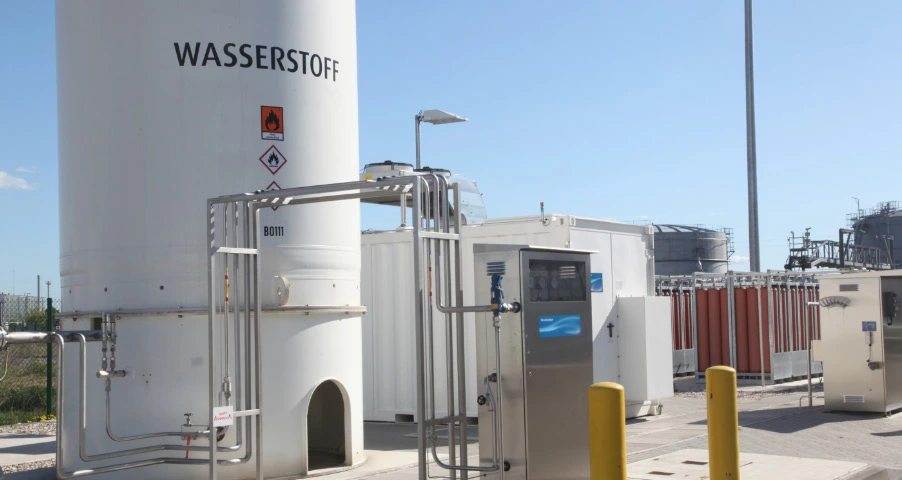The contribution of decentralized electrolyzers to the energy transition
RLI conducts a study on small electrolyzers for the production of green hydrogen on behalf of Greenpeace Energy
On behalf of Greenpeace Energy, RLI is preparing a study that examines the role of electrolysers for hydrogen production for the energy transition. It focuses in particular on small electrolyzers that could convert surplus electricity into hydrogen on a decentralized basis.
Green hydrogen as an important flexibility option in the energy system
Hydrogen can be an important component in the transition to a climate-neutral energy system. If it is produced by electrolyzer from renewable energy, it is called “green” hydrogen. Green hydrogen is climate-friendly, can be stored, and transported over long distances. It thus contributes to sector coupling – a key concept of the energy transition – and becomes the basis for climate-neutral mobility, industry, and heat supply.
In electrolysis, water is split into hydrogen and oxygen by applying an electrical voltage. At present, however, it is not clear what kind of electrolyzers would make sense for the energy transition in Germany. Should they be small and decentralized, or are high connected loads at central production sites the best solution? What are the advantages and disadvantages of the different electrolyzers? This study will shed light on these questions with a focus on small electrolyzers.
Which electrolyzer can do what?
The study contains an inventory of existing electrolyzers, as well as a consideration of the different sizes, performance classes, operating concepts, target groups, and costs. Their respective potential for supporting the energy transition is analyzed depending on the application. Factors include:
- Their flexibility in the production and offtake of hydrogen
- Their ability to integrate fluctuating renewables
- Local value creation and acceptance
- Transportation and storage needs
- Their ability to use byproducts such as heat and oxygen
Three different utilization scenarios are used to examine the advantages and disadvantages of small electrolyzers in each case. The findings from the utilization scenarios are summarized in a SWOT analysis.
Where do electrolyzers fit?
In the second part of the study, five reference grid areas are used to illustrate the contribution that small electrolyzers can make for meeting hydrogen demand. The reference grid areas correspond to typical grid area classes, which can be roughly divided into the categories PV-, wind-, and load-dominated. The role that small electrolyzers can play in the implementation of the National Hydrogen Strategy (NWS) is also examined. Finally, a qualitative assessment of the impact on the required power grid infrastructure is made using the results.
The study is being conducted on behalf of Greenpeace Energy, with results expected in early 2022.
Further information:
Oliver Arnhold
Reiner Lemoine Institut gGmbH
Project Manager
Rudower Chaussee 12, 12489 Berlin
Phone: +49 30 1208434-30
Email: oliver.arnhold(at)rl-institut.de
Press release RLI, 31 July 2021
